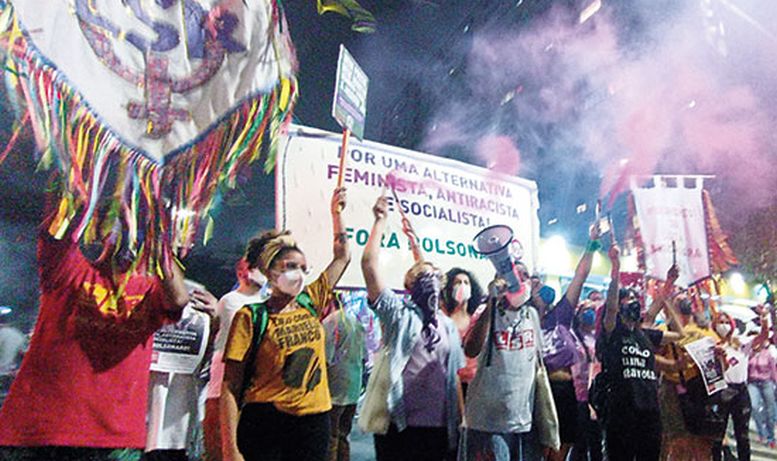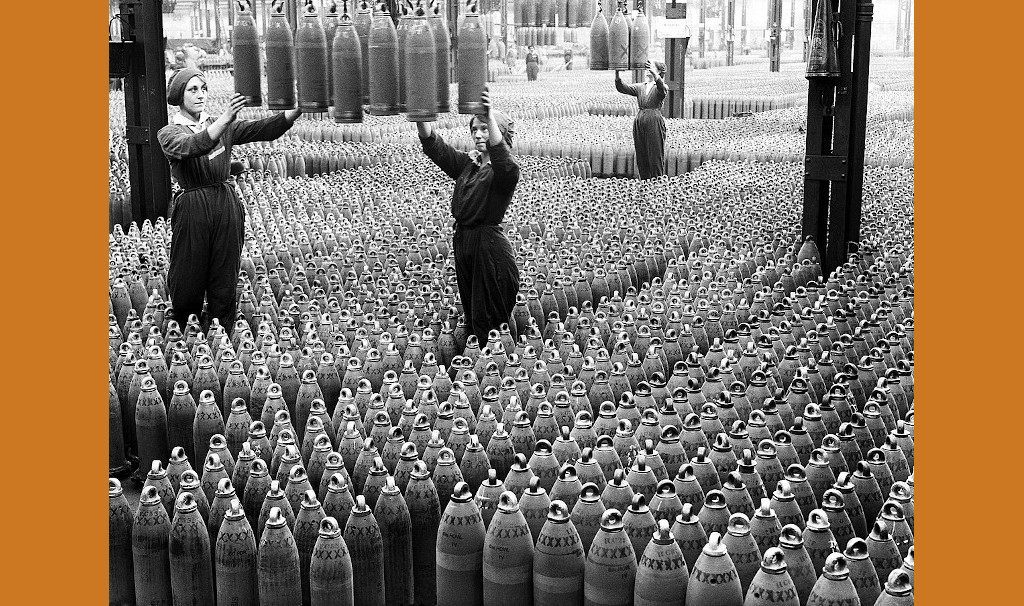The defeat of Bolsonaro at the polls and the election of Lula opens a new scenario for the class struggle in Brazil. The Partido Socialismo e Liberdade (Socialism and freedom party or PSOL) now has to decide whether to return to its original project of building an independent left alternative or to capitulate to the class conciliation policy of the Partido dos Trabalhadores (Workers Party or PT).
The importance of Bolsonaro’s defeat in the second round and what this means for a large portion of the working class, especially women, black people, indigenous people, and LGBT people is undeniable. All of these are entitled to a moment of relief after years of attacks, threats, and killings in the face of a genocidal far-right government. But we cannot fall under the illusion that the job is done, that the defeat has been complete and that Bolsonaro and Bolsonarism were just anomalies that have now been corrected.
Less still can we expect that all these years of setbacks will be automatically annulled by Lula’s victory and that now all our rights will be given back, no strings attached. We know that, first of all, Lula is a conciliator and that his priority will be to show himself to be a good statesman, cozying up to investors and the financial sector, indicating that the transition and his government will be a “return to normality” where profits will be guaranteed while social movements will once again be tamed.
The defeat of Bolsonarism will come from the streets
The definitive defeat of the far right, which still prowls the streets, and the guarantee of regaining our rights, will come through struggle, the struggle in the streets, with the strength of the working class, social movements and oppressed peoples.
The PSOL has the possibility to lead or be a major force in these struggles, but is going through an identity crisis. On one hand, the party has achieved important electoral advances, growing its block from 8 to 12 in the Chamber of Deputies, including Indigenous women like Célia Xakriabá and Sônia Guajajara; Guilherme Boulos, leader of the homeless workers movement; and Erika Hilton, one of the first trans women to be elected as a federal deputy, all with expressive votes.
A faded profile
At the same time, the party’s profile has been increasingly erased during this election, since the decision made was to support Lula in the first round. Without a candidacy of its own for the President, and in some important states without candidates for governor, the party has given up its own voice. It left the stage empty and, in its vacuum, opened space for others to take the lead. Where this was most evident was in the TV debates. Imagine if Guilherme Boulos, Glauber Braga, Sônia Guajajara or any PSOL figure were in the debates together with other presidential candidates? The PSOL could have raised important issues such as the repeal of the counter-reforms, taxing the super-rich and the defense of women’s issues, among other things. In its absence, figures like Simone Tebet (MDB) and even Soraya Thronicke (União Brasil) of the traditional right-wing parties managed to project an extremely limited liberal and bourgeois feminism that only serves the rich class.
The ability of a party with combative candidates that confront the right and far right head-on could have been an important factor on this national stage raising the party’s profile whilst at the same time giving a bigger platform for left ideas, including those that the PT did not raise.
A PSOL presidential candidacy was possible
As we have reaffirmed in several previous articles and as we defended in the PSOL Congress, it was possible for the party to present a presidential candidate and, depending on the context of the campaign, withdraw it if the circumstances indicated that it was necessary to vote for Lula already in the first round. The right-wing candidates who, in the first round, were competing with (and even attacking) Lula’s candidacy, eventually joined his campaign in the second round. When they did so they were not only welcomed, but lauded as heroes for their stance.
But this was not the only space where the party lost its campaigning edge by entering into the logic of Lula’s campaign. On the streets the official campaign was timid, an element that has been taking shape long before the electoral period. The solely electoral tactic of the PT, not firmly contested by the PSOL, meant that even during the worst moment of the pandemic and the economic crisis, the full weight was not thrown on the fight to bring down Bolsonaro. This was also reflected in the first days after Lula’s victory, when parts of the PSOL followed the PT’s line of not “provoking” the Bolsonarist gangs that are blocking highways and organizing coup demonstrations. They rejected the idea of mobilizing the left to free up the roads and to take the struggle against the far right to the streets. In this vacuum it was organized football fans who took the initiative while part of the party waited for the police to “fulfill their role.”
Betting on the institutions in detriment of the struggles
This is a reflection of a party that, even with its more combative origins, not only capitulates to the pressures of the PT, but also follows its institutional logic. There is a flurry of statements and posts from the PSOL declaring that it has called on the public prosecutor’s office or the supreme court to investigate some barbarity of extremists and scoundrels from the far right.
It seems that the idea of calling for protests, struggles, strikes, or any other tool of our class has been forgotten in favor of the logic of betting on institutions. Even the focus on impeachment as a purely parliamentary initiative reflects this. It is not that we should not insist on investigations, punishment or any other legal mechanism against the Carla Zambellis, Daniel Silveiras or the Bolsonaro family itself, but that this will have no consequence and the institutions will not act without real pressure from below.
The PSOL needs to be a tool of the working class and the oppressed people in the service of the struggle. It is the struggle that will guarantee and conquer rights and that will be able to defeat the far right, including against any coup adventure that targets the new elected government.
Maintaining independence
But, this can only be done with a PSOL maintaining its independence and, therefore, outside of the government of the “broad front,” a front that includes representatives of big business and the neoliberal right. Only in this way can the PSOL maintain its credibility and coherence in the eyes of our class. We know that even with some progressive measures already being taken, Lula will not be able to deliver what was promised. The financial sector, right wing parties and the part of the traditional right with which the PT has made its main alliance will press to guarantee their interests above the interests of the working class. New attacks will arise, and we have to prepare ourselves to face them.
There are those within the PSOL that are already openly defending the entrance of the party into the new government. The party has already accepted to be in the government’s transition team, through Guilherme Boulos and the president of PSOL, Juliano Medeiros. He has already declared in an interview to the Valor newspaper that “it is very unlikely that the PSOL will assume an opposition position”. This all points to the party participating in Lula’s government. The idea of party members taking positions in the government would put into question the very existence of the PSOL, whose essence was to build itself as a left party that would draw conclusions from the mistakes of Lula and its class conciliation policy.
One argument that makes sectors of the party consider entering the government is the need to defend Lula’s government against attacks from the far right. Even in this aspect, joining the government is a mistake. It is not necessary to be part of the government to defend democracy and resist the attacks from the right. But it is possible and necessary to build a programmatic, left, coherent, and consistent opposition that is capable of confronting and denouncing the far right and blocks them from being seen as the only opposition to the limits of the new government.
In the shadow of the PT
Another argument is that taking the step of entering the government would lead the PSOL to now become a “serious party” with mass influence. This assumes that the party’s identity would not be totally obscured by the shadow of Lula and the PT and that they would pay any attention to its junior partner, something that historically we have seen never actually happens. The entry into government would serve to tame the PSOL, to neutralize any left opposition that could threaten the PT hegemony. In 2020, the PT felt this threat with Boulos’ campaign for mayor in São Paulo and Edmilson’s mayoral election in Belem, in addition to other advances. But it is exactly this alternative left profile that has given prominence to the party, that has helped to increase its elected representatives and that helps to boost the struggles that can obtain victories under the new government.
Defence of a coherent socialist program
The PSOL does not need to be in government to be taken seriously, to achieve advances or to defend our democratic rights. It is the coherent defense of a socialist program and the commitment to the real struggle that will attract people, that will advance our agendas and that will make the party a left reference. When new crises break out, Lula’s government, by not promoting structural changes, will not be able to deliver all its promises, and the system will once again show itself incapable of dealing with it. At this moment people will look for an alternative, be it left or right. An independent and fighting PSOL, which is the left opposition to the class conciliation government, will have the capacity to be this alternative, to channel the frustrations and to point to a real way out. This is what led to the creation of the party 18 years ago, it is its reason for existing.
We must fight for an independent PSOL, rooted in the struggles and with a socialist program.




